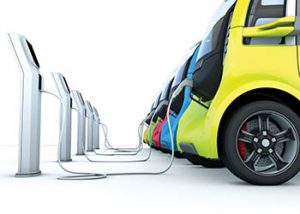 U.S. electric vehicle sales set another annual record in 2017, with nearly 174,000 plug-in cars sold just through November. But how much stronger would sales be if dealerships aggressively pushed EVs?
U.S. electric vehicle sales set another annual record in 2017, with nearly 174,000 plug-in cars sold just through November. But how much stronger would sales be if dealerships aggressively pushed EVs?
Last fall, a market research firm sent mystery shoppers to 141 dealerships in America’s 10 largest EV markets to document the EV sales experience. The surveyed dealerships offering both traditional vehicles and EVs received less than glowing marks.
The research study documents a litany of issues at traditional brand dealers. Mystery shoppers largely encountered a “passive” process. Dealerships hadn’t customized the sales process for EVs. Electric cars often weren’t available on the lot to view or to test drive. EV ownership information, via sales staff or marketing materials was lacking.
The sales process was “wrought with inconsistencies.” From one dealership to the next, even within the same brand family, one salesperson might be knowledgeable and eager to help shoppers find the right plug-in car, while the next might be woefully unprepared about EVs.
The biggest takeaway is inconsistency. “There aren’t standards or processes that are implemented and communicated across the brand,” noted the researchers.
Worse, with on-the-lot EV inventory scarce and salespeople reluctant to search for or order an EV, mystery shoppers were often steered toward a hybrid or a traditional gasoline vehicle.
The recent findings match those in a larger Sierra Club survey published in August 2016.
“While automakers may claim their low electric vehicle sales are a result of low demand, the Rev Up EVs report shows automakers and dealerships often aren’t doing their part to sell them,” said co-author Gina Coplon-Newfield, the Sierra Club’s Electric Vehicles Initiative director.
To incentivize dealerships to push EVs, Connecticut launched the first statewide program offering EV rebates at the point of sale. The program includes a carrot for dealerships: a $300 incentive for each rebated EV. A looming threat to such state-level incentive programs, though, is the federal tax reform legislation. The House would repeal the current $7,500 federal tax credit for electric vehicles, while the Senate retains the credit. How lawmakers reconciled the difference between the two bills was being decided as this issue went to press. — Source: Greentech Media



